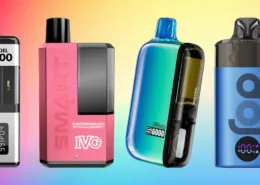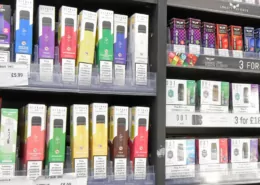Panama’s Supreme Court Declares E-Cigarette Ban Unconstitutional
In a unanimous decision, Panama’s Supreme Court of Justice (CSJ) has declared Law 315 of June 30, 2022, which prohibited the use, import, and commercialization of electronic cigarettes, tobacco vaporizers, and other similar devices with or without nicotine, unconstitutional. The ruling, delivered by Justice Olmedo Arrocha, found that the law violated Article 170 of the Constitution.
According to the court’s decision, the law contravened the constitutional provision that states if a bill is objected to in its entirety by the Executive Branch, it must return to the National Assembly for a third debate. If only partially objected to, the bill returns to a second debate solely to address the objections raised.
The article also stipulates that if the National Assembly considers the objections and the bill is approved by two-thirds of the deputies, the Executive must sanction and promulgate it without the ability to present new objections. If this number of deputies is not obtained, the bill is rejected.
When the legal action was filed, the Association for the Reduction of Smoking Harm in Panama (ARDTP) argued that the legislation did not receive the affirmative vote of the number of deputies required by the Constitution. They also alleged that after the bill was returned with the presidential objections report, additional provisions were added beyond those proposed by President Laurentino Cortizo, which had material implications and changed the meaning of what the head of the Executive had suggested.
The anti-e-cigarette bill was introduced by Crispiano Adames and approved on March 19, 2020, but later vetoed by Cortizo. The legislature resumed discussion of the vetoed document in August of that year, which was approved in a third debate on July 8, 2021, and sanctioned in June 2022.
The plaintiffs contended that the prohibition of these products was detrimental to health, as it prevented access to less harmful articles for adult smokers struggling with addiction and those around them. They also argued that such a regulation would foster contraband in the country.
According to the CDC, while e-cigarettes have the potential to benefit some people and harm others, scientists still have much to learn about the effectiveness of e-cigarettes for smoking cessation.
The Supreme Court’s decision to declare the e-cigarette ban unconstitutional has significant implications for the regulation of these products in Panama. It opens the door for a more nuanced approach that balances public health concerns with the rights of adult consumers and the potential for harm reduction.
As the country moves forward, policymakers will need to carefully consider the scientific evidence, international best practices, and the unique context of Panama to develop a regulatory framework that effectively addresses the challenges posed by e-cigarettes and other novel nicotine delivery systems.








